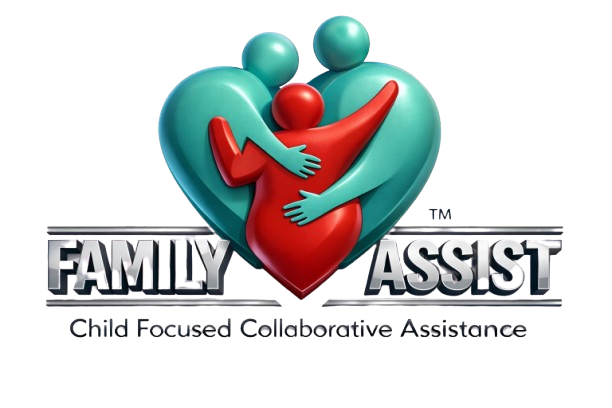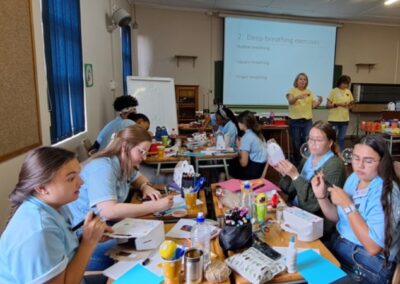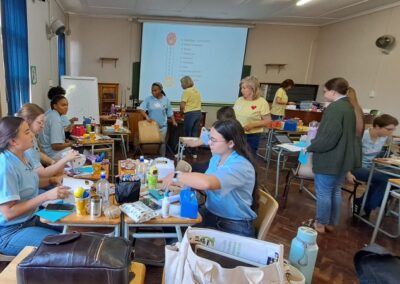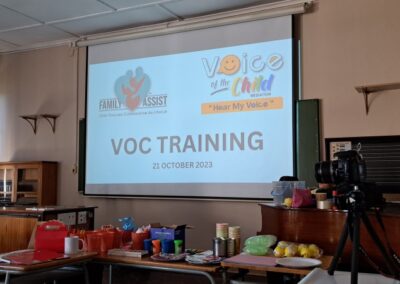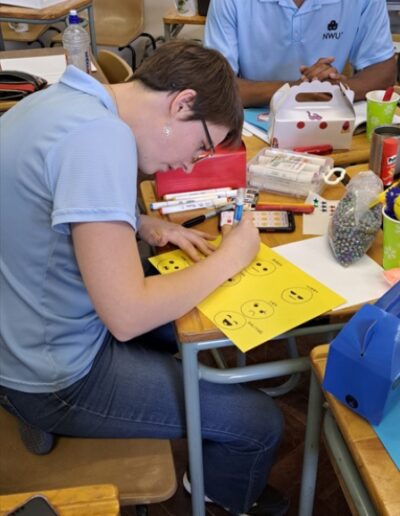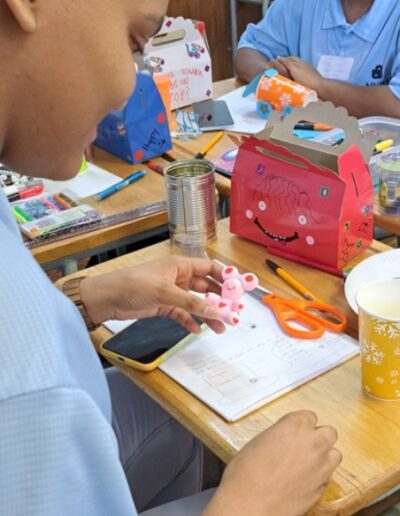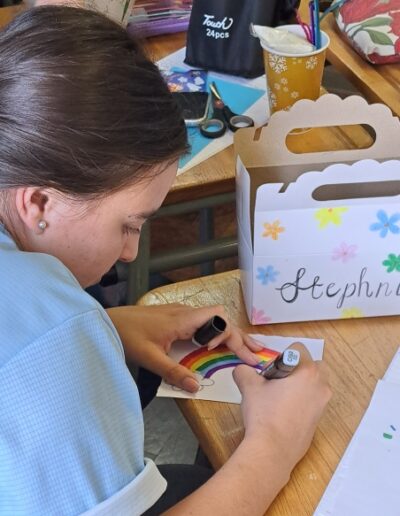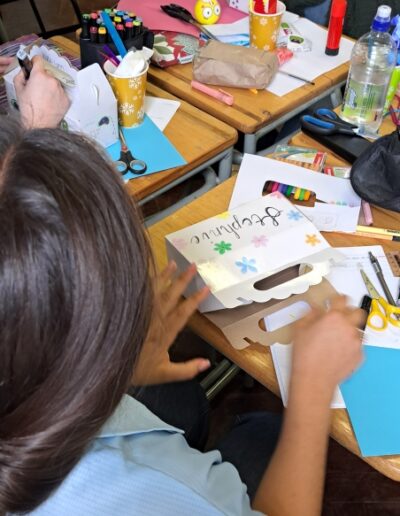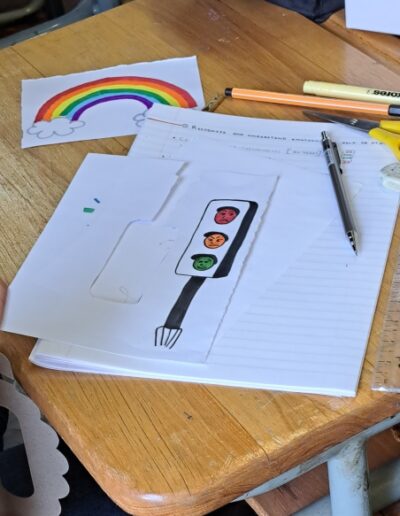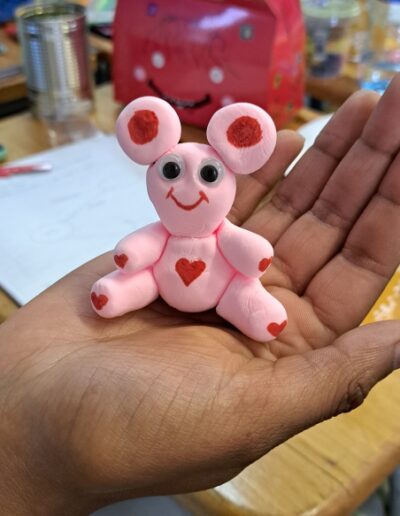Voice of the Child Practitioner Online
e-Training Course
“Hear My Voice”
Unlock the Power of Knowledge with Voice of Child Practitioner Training!
- Discover the advantages of VOC protocols, detailed mandates, and innovative VOC techniques.
- Gain a competitive edge in your field with this streamlined VOC process and expert guidance, ensuring efficiency and compliance!
- Don’t miss out on the tools and expertise that can transform your work with Children – choose excellence with us!
What does the Course entail?
The Voice of the Child course consists of:
- Pre-recorded Lectures
- Pre-reading
- Interactive activities
- Quizzes
- Discussion forums
- Core Competencies
- Assessments and more.
The course includes 40 hours worth of Course Material and includes:
- Neurodiversity and behaviour in children
- Kidz Skills – Master Course Training preview
Take Note!
CPD points are available for:
- SACSSP – 19 CPD points for Social Workers
- HPCSA – Psychologists & Counsellors (Pending)
- ASCHP – Counsellors (Pending)
Upon completion of this course, you will receive a certificate as an acknowledgment that you have completed the Voice of the Child Practitioner Online e-Training Course.
(Please keep in mind that practical experience is crucial before you will be accredited and will be able to practice as a Voice of the Child Practitioner)
Cost
Total Course Price: R5,949
PLUS
Additional Compulsory Cost:
- R99 – Certification & set of books
- R500 – Assignment evaluation by an external assessor
Total: R5,949
What the Programme Entails
Course outline:
Module 1: Introduction to Voice of the Child Practitioner Training
Module 2: Understanding the Role & Function of the Voice of the Child as an Instrument
Module 3: Dynamics of Divorce and the Effects on Children
Module 4: The Voice of the Child process, mandate & guidelines
Module 5: The Children’s Act, Child Participation, and Parenting Plans
Module 6: Setting Goals & Objectives as a Voice of the Child Practitioner
Module 7: The Voice of the Child Room and Preparation
Module 8: The Practical Applications of the VOC Interview & Techniques – Building your VOC Practitioner Toolbox
Module 9: Report Writing & VOC Feedback in the Mediation Session
Module 10: Children’s Behaviour and Neurodiversity
Module 11: Ethics
Module 12: Kidz Skills – Master Course Training preview
Please Note – The cost of Voice of the Child Practitioner Training consists of the Opening Special and the Compulsory Additional cost. The total cost for the course is R5949
Presenters

Adv. Chris J Maree
Senior Advocate
Children’s Act & Parenting Plans

Marici M Corneli
Court Annexed Mediator, Writer, Speaker
Mediation, Mandates & Processes

Minke Saayman
Child & Family Therapist / Clinical Social Worker
VOC Techniques, Methods & Kids Skills

Jolene Jansen van Vuuren
Voice of the Child Practitioner
VOC Framework & Guidelines

Marianne Kruger
Clinical Psychologist
Neurodiversity, Special Needs & Children’s Behaviour

Michael Powane
Social Worker
VOC Feedback & Report Writing

Marni Du Plessis
Voice of the Child Practitioner
Teaching Children Self-Regulation & Kids Art
Voice of the Child Practioners understand that a child’s voice matters!
VOICE OF THE CHILD is an interactive engaging instrument utilized to understand a child’s world and views in any matters pertaining to divorce or change of their circumstances.
Voice of the Child is an instrument used to determine how a child experiences his/her world at a specific moment in time and was implemented in accordance with the Children Act 38 of 2005.
It enables practitioners and families to work towards an amicable solution in matters pertaining to the care, contact, guardianship, and maintenance of a child. We use the Voice of the Child with its combined techniques, observing the child’s view of his / her current world and his / her interaction with his / her surroundings and influential environment.
Used as part of the Child-Focused Collaborative Process trademarked by Family Assist, creating a safe environment in which a child will have the courage to verbalise and share his / her experiences within his/her world.
The VOC Practitioner has a responsibility to listen attentively to the child’s voice, and to then echo the child’s voice when providing feedback to the parents, without adding any form of self-understanding or your own conclusions.
Who should attend the Course
- Psychologists
- Counsellors
- Social Workers
- Anyone in a similar field working with children
- Play Therapists
- Teachers
Outcome
Upon completion of this course, you will receive a certificate as an acknowledgement that you are a Voice of the Child Practitioner (please keep in mind that practical experience is crucial before you will be able to Practice as a Voice of the Child Practitioner.
19 CPD points are available for Social Workers
For more funding options
Online Training
And Why We Offer It
There is a shift towards a more interactive, collaborative approach in online training where the instructor’s role is changed to “the guide on the side.” Online distance learning meets the needs of an ever-growing population of students who cannot or prefer not to participate in traditional classroom settings.
These learners include those unable to attend traditional classes, who cannot find a particular class at their chosen institution, who live in remote locations, who work full-time and can only study at or after work, and those who simply prefer to learn independently.
The minimum requirement for students to participate in an online course is access to a computer, the internet, and the motivation to succeed in a non-traditional classroom.
Online courses provide an excellent method of course delivery unbound by time or location allowing for accessibility to instruction at anytime from anywhere.
Learners find the online environment a convenient way to fit education into their busy lives. The ability to access a course from any computer with Internet access, 24 hours a day, seven days a week is a tremendous incentive for many of today’s students.
It is important to understand that:
• Increased responsibility for learning belongs to the student
• Motivation for learning comes from successful completion of your Q & A and other assignments
Why We Do What We Do
Why Do We Provide Training?
Passion & Knowledge
We share our passion to share our knowledge and years of experience in the mediation field and to assist with supervision and skills development in the industry
Positive Change
We aim to be the influencers of positive change. To fulfill this vision, we want to build a network within the field with likeminded professionals who also wish to bring about positive change
Engage
We want to engage with young mediators from multi-disciplinary fields to help build their skills and their confidence in their working environment going forward
Family Focussed
We are committed to developing family focussed mediation. We want to ensure that the best practices and ADR concepts are being practiced at all times

